Australia has long been an ideal destination for international students thanks to its quality education, safe living environment and attractive settlement opportunities. In particular, for those who choose to study vocational training in Australia, choosing the right career will open the door to wider settlement.
I. Introduction & Background of vocational study in Australia
In recent years, vocational training in Australia has become a popular choice for many Vietnamese students. Not only does it have reasonable costs and flexible study time, this form of training also opens up opportunities for settling in Australia after vocational training thanks to its association with priority occupations for Australian settlement.
In 2025, the Australian government will continue to adjust its skilled migration policy to attract high-quality workers in areas with labor shortages. This means that if you choose to study the right major that is easy to settle in Australia and is in the priority group, your chances of staying to work and applying for permanent residency (PR) will be much higher.

II. Overview of Australia's skilled immigration policy 2025
1. Priority occupation lists: STSOL, MLTSSL, ROL, PMSOL
Australia's skilled migration system is based on priority occupation list published by the Department of Home Affairs. In 2025, the four key lists include:
- STSOL (Short-Term Skilled Occupation List):
Lists occupations that are in high demand in the short term, suitable for temporary visas such as the 482 visa. This list is often flexible to meet the labor market situation. For international students, this is an opportunity to stay in Australia to work short-term, gain experience and gradually meet the requirements for long-term visas.
- MLTSSL (Medium and Long-Term Strategic Skills List)
Including medium and long-term strategic occupations such as engineers, nurses, programmers... opening up opportunities to apply for permanent settlement visas such as visas 189, 190. The occupations in MLTSSL are often considered economic pillars, so career opportunities and income are more stable. This is the list that many international students aim for if they want to settle in Australia after vocational study without depending on employer guarantee.
- ROLE (Regional Occupation List)
Focusing on necessary occupations in remote areas, often enjoy preferential points and 491 visa conditions. When studying and working in the Regional area, candidates can access a low-cost living environment and many support policies from local authorities. In particular, jobs in the Regional area are often less competitive than in big cities, creating conditions for sustainable career development.
- PMSOL (Priority Migration Skilled Occupation List)
The urgent occupations, which are prioritised for fast-track visa processing, are mainly focused on health, information technology and engineering. This list reflects the immediate needs of the Australian economy. International students studying PMSOL subjects often have a competitive advantage when looking for jobs, as employers and governments prioritise these positions.

2. The significance of having a major on the priority list
If your field of study appears in STSOL, MLTSSL, ROL or PMSOL, you will receive many important advantages in your Australian settlement path after vocational study.
- Higher chances of getting skilled visa
Some Australian skilled migration visas such as visas 189, 190, 491 only consider occupations on the priority list. This means that if your occupation is not on the list, your visa application will almost certainly not be able to progress. For example, nursing (on the MLTSSL) always has a high approval rate due to the sustainable demand for human resources.
- Faster approval times
Especially with PMSOL, visa applications will be processed with priority, significantly shortening the waiting time compared to normal. This is a great advantage for international students because it helps them start work early, stabilize their income and avoid interruptions to their settlement plans.
- Increase your chances of getting state or regional sponsorship
If you study and work in a Regional Area within the ROL, you will not only receive points under the points test, but also have the opportunity to be sponsored by a state or territory government. This increases your chances of being granted a 491 or 190 visa, two popular pathways to permanent residency (PR).
- Stable income and job opportunities
The priority sectors are often in short supply in Australia, resulting in competitive salaries and above average job opportunities. For example, sectors such as engineering, programming, nursing, etc. are not only in high demand in the city but also in the regional areas, giving you more flexibility in choosing where to live.
III. List of occupations that are easy to settle after studying in Australia in 2025
1. Medical - Nursing Industry
The medical and nursing professions are always in the MLTSSL and PMSOL, and are one of the easiest occupations to settle in Australia. The demand for human resources is increasing due to the aging population and the shortage of nurses, caregivers, and doctors in many states, especially in the Regional area. Graduates of nursing, health care, or specialized medical professions can easily find jobs with good salaries and have the opportunity to apply for a 189 or 190 visa.
2. Information Technology (IT) Industry
IT is a key industry in Australia's digital economy, consistently appearing in the MLTSSL and PMSOL. Positions such as programmers, software engineers, cybersecurity experts and data analysts are in high demand. IT international students have a big advantage when applying for a skilled migration visa due to the shortage of high-quality human resources in the market. The salary in this industry is among the highest in Australia, with many new opportunities.
3. Engineering
Civil, mechanical, electrical and mining engineers are all part of the MLTSSL, which facilitates the application for a 189 or 190 visa. Australia is implementing many infrastructure and renewable energy projects, leading to a strong demand for engineers. Students in this field often have high starting salaries and the opportunity to work long-term on large-scale projects.
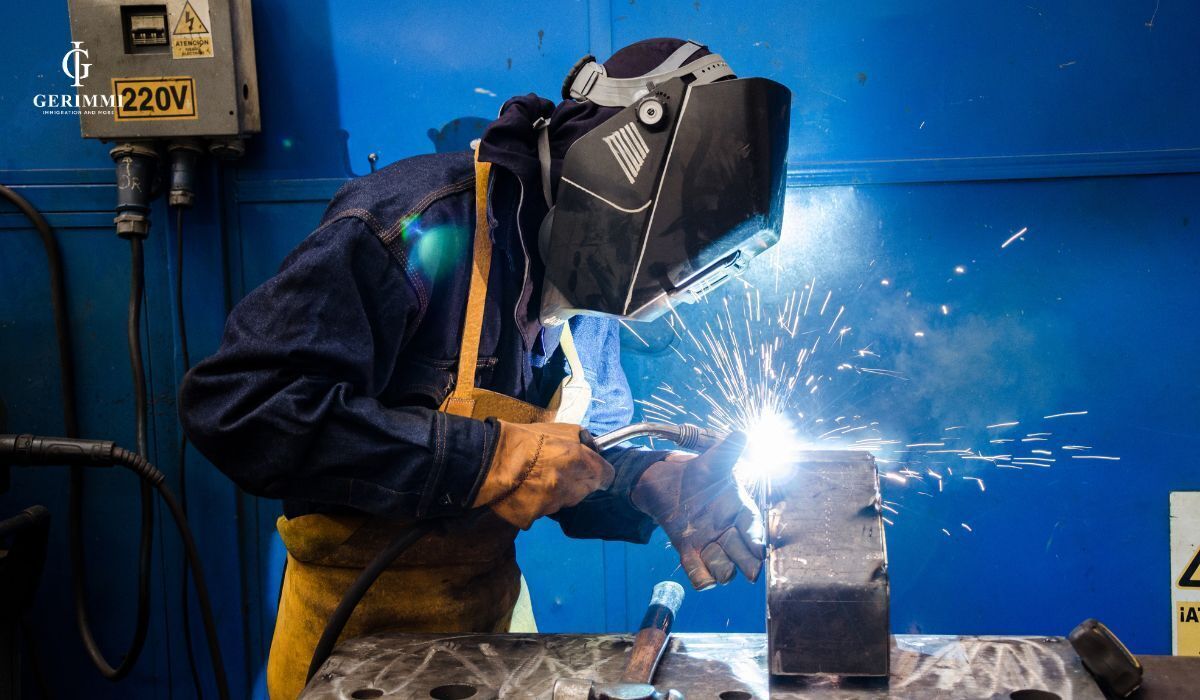
4. Education Industry
Preschool, elementary school, and science and math teachers are in short supply in many states. The education sector is part of the MLTSSL and ROL, making it particularly suited to Regional immigration. Visa applications are often given priority, and offer a professional work environment and advancement opportunities.
5. Restaurant - Hotel - Hospitality Industry
The hospitality industry is part of STSOL and some positions in ROL, especially beneficial when working in Regional. This field requires management skills, event organization, customer service. Australian tourism has recovered strongly after the pandemic, causing the demand for human resources to increase. Working in Regional also helps to gain settlement points and makes it easier to apply for 491 visa.
6. Law
Commercial lawyers, immigration lawyers and solicitors are part of the MLTSSL and are in steady demand. This profession requires a high level of English and meets the requirements to practice in Australia. Once qualified, the settlement opportunities, salary and social status are all very attractive.

7. Accounting & Auditing
Accounting and auditing are always in MLTSSL because of their important role in businesses. High recruitment demand in financial companies, banks and international corporations. International students with skills and English can apply for 189 or 190 visa, enjoy stable income and long-term promotion opportunities.
IV. Popular types of vocational study visas in Australia
- Visa 500 (Student Visa)
This is the most common type of visa for international students studying vocational, college or university courses in Australia. The visa allows full-time study, and allows students to work up to 48 hours every 2 weeks during the semester and unlimited hours during the holidays. This is the first step for students to start their study path and move towards permanent residence in Australia.
- Visa 485 (Temporary Graduate Visa)
For international students who have recently graduated from vocational or university courses in Australia. This visa allows them to stay in Australia for 18 months to 4 years depending on their level and field of study, creating opportunities to accumulate practical work experience, increase their points for skilled visas, and at the same time seek opportunities to apply for visas 189, 190 or 491.
- Visa 407 (Training Visa)
Allows foreigners to participate in vocational training or professional development programs in Australia. This is a good option for those who want to improve their skills, complete a Skills Assessment and prepare for a settlement application.
- Visa 590 (Student Guardian Visa)
For guardians accompanying international students under 18 years of age, or in approved special circumstances. This visa allows parents or legal guardians to support international students throughout their studies and stay in Australia.
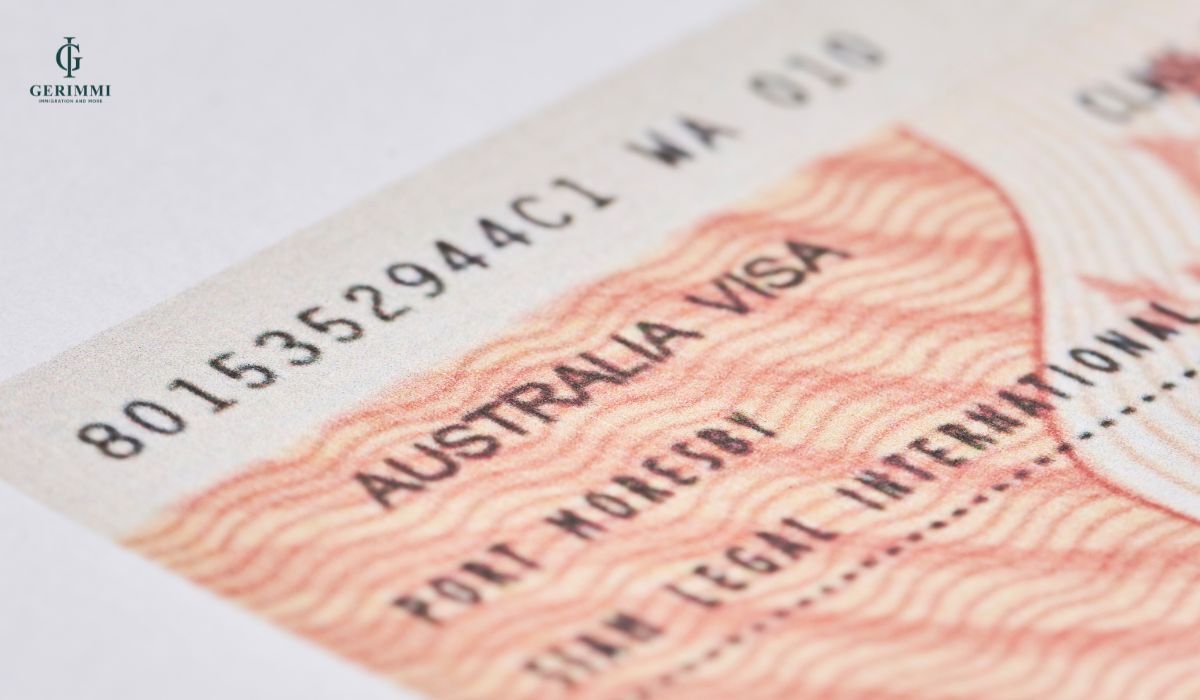
V. Conditions for settling in Australia after studying vocational training in Australia
- Priority list majors(MLTSSL, STSOL, ROL, PMSOL): Having your field of study on the priority list increases your chances of getting a skilled migration visa. Some visas are only approved for these fields, and you will also get extra points or faster processing times.
- Meet English requirements:Most skilled migration visas require an IELTS score of 4.5 - 7.0 depending on the industry, or an equivalent certificate such as PTE, TOEFL. A high English score also helps to add points in the Australian visa scoring system.
- Related work experience:A minimum of 1-2 years of work experience in Australia or overseas in your field of study will significantly increase your visa points. Many migration programs require experience in a regional area to be eligible to apply.
- Skill Assessment:This is a mandatory step from the Australian professional body (such as ANMAC for nursing, ACS for IT, Engineers Australia for engineers) to confirm your skills and qualifications meet the settlement criteria. Without a satisfactory Skill Assessment, you cannot apply for any type of skilled visa.

VI. The path from vocational study in Australia to settling in Australia
1. Documents needed to prepare when studying vocational training in Australia
- Valid passport
This is a mandatory document for you to apply for a visa and enter Australia. Your passport must be valid for at least 6 months from the date you plan to arrive in Australia. If your passport is about to expire, you should renew it before submitting your visa application to avoid any disruption. In addition, keep your passport in good condition, without any torn, wet or missing pages.
- Letter of Offer and Confirmation of Enrolment (CoE)
Once accepted by a vocational school or institute in Australia, you will receiveLetter of Offer. After paying the deposit or part of the tuition fee, the school will issueCoE - Confirmation of Enrolment.This is a required document when applying for a job.visa 500. CoE proves you have legally enrolled in a course of study in Australia.
- Degree, transcript, report card
You will need to prepare all your previous academic documents, including your high school transcripts, college/university diplomas (if applicable). All documents must be translated into English and notarized to ensure legality and acceptance by Australia. These documents will help the school and the review agency assess your academic background.
- English Certificate
To be eligible to study and apply for a visa, you will need an international English test result such as IELTS, PTE Academic or TOEFL iBT. For most courses study abroad in Australia, the requirement is usually IELTS 5.5 or higher (or equivalent). If you do not meet the requirements, you can register for an additional English course before starting vocational training.
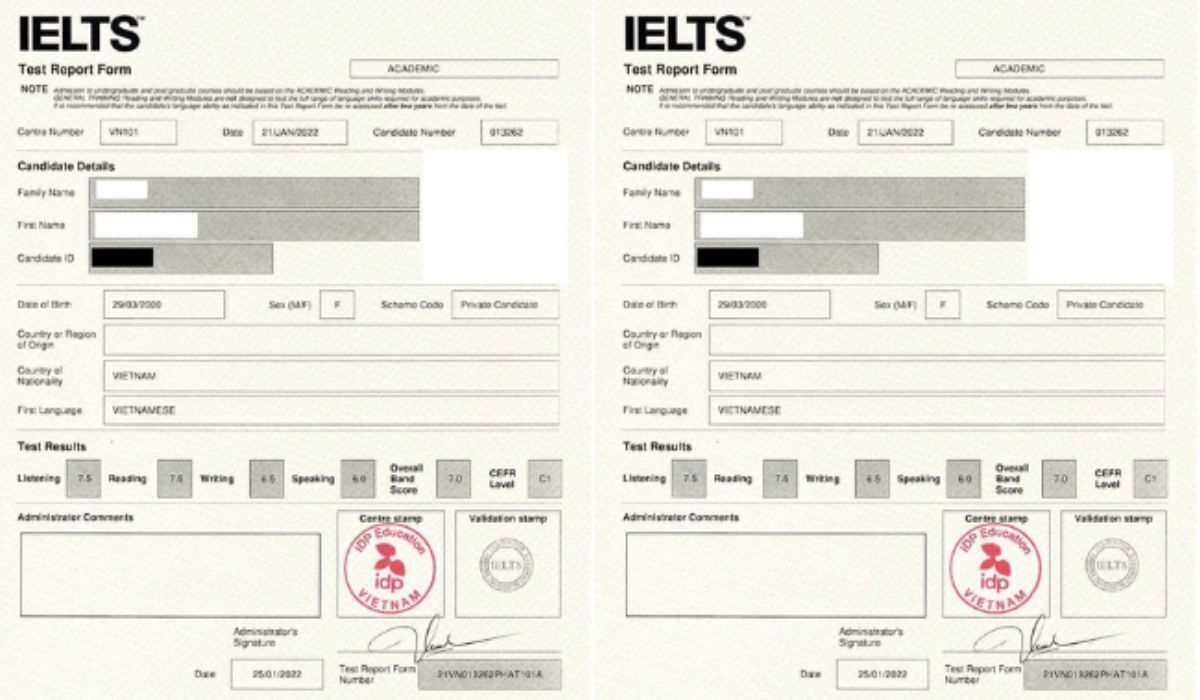
- Financial proof
The Australian Government requires international students to demonstrate that they have the ability to pay their tuition fees and living expenses during their studies. You can submitbank statement, savings book, or proof of income from yourself/your parents/sponsors. This ensures that you do not have to drop out of school due to lack of finances.
- Health certificate
You must be examined at the hospital designated byAustralian Department of Home Affairs. The results will be sent directly to the visa processing authority to confirm your health eligibility to study and live in Australia. Some infectious diseases may delay your application or require treatment before coming to Australia.
- OSHC (Overseas Student Health Cover)
OSHC is compulsory for the entire time you study in Australia. It helps cover medical expenses, hospitalisation and medication during your stay. You can buy OSHC directly from your institution or from an approved insurance provider.
- Criminal record
You need to submitCriminal record number 1(for those who have never settled overseas) or number 2 (if you have settled/worked overseas). The purpose is to prove that you have no criminal record and ensure community safety in Australia.
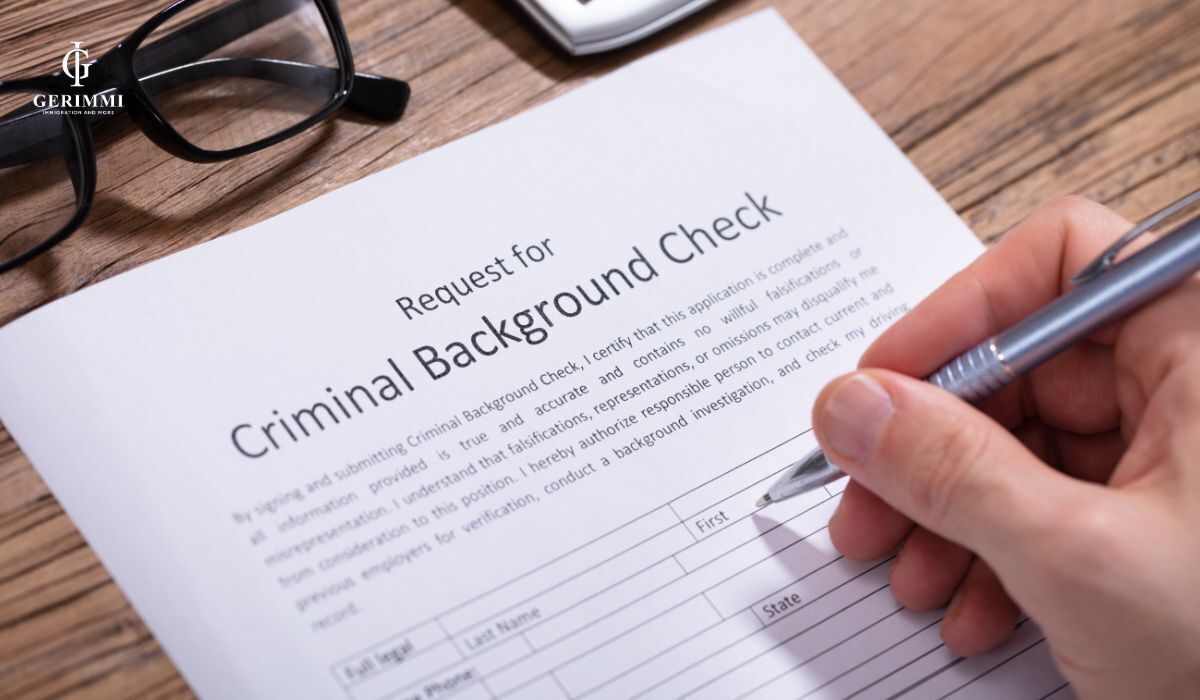
2. Steps to settle down after studying vocational training in Australia
Step 1: Find a job that matches your major
Immediately after graduation, you should quickly find a job related to your major. This will not only help you earn an income but also gain practical work experience - an important factor in your application.Australian skilled migration visa. If working atRegional, you also get extra points when considering visas and open up opportunities for visa 491 (Skilled Work Regional).
Step 2: Apply for a temporary visa to work in Australia
Most students will apply after graduation.visa 485 (Temporary Graduate Visa)This visa allows you to stay in Australia for 18 months to 4 years depending on your level and field of study. This is the golden period for you to accumulate work experience, improve your English score, and prepare for your skills assessment application.
Step 3: Skill Assessment
You will need to submit your application to an Australian Government recognised skills assessment body. For example: ANMAC (for nursing and health), ACS (for IT), Engineers Australia (for engineers). This process assesses whether your qualifications and experience meet Australian occupational standards. Without a satisfactory Skills Assessment, you will not be able to apply for any skilled visa.
Step 4: Submit an Expression of Interest (EOI)
After passing the Skill Assessment, you need to submit an EOI on the Australian government's SkillSelect system. In the EOI, you will declare your personal information, occupation, English score, work experience and other points-adding factors. The higher the score, the greater the chance of receiving a visa invitation.
Step 5: Receive invitation letter and apply for skilled migration visa
If invited, you may apply for one of the following types of Australian immigration visa popular:
- Visa 189 (Skilled Independent): No guarantee required, high score required.
- Visa 190 (Skilled Nominated): Sponsored by a state or territory.
- Visa 491 (Skilled Work Regional): Work in Regional area, 5 years term, can switch to PR after 3 years.
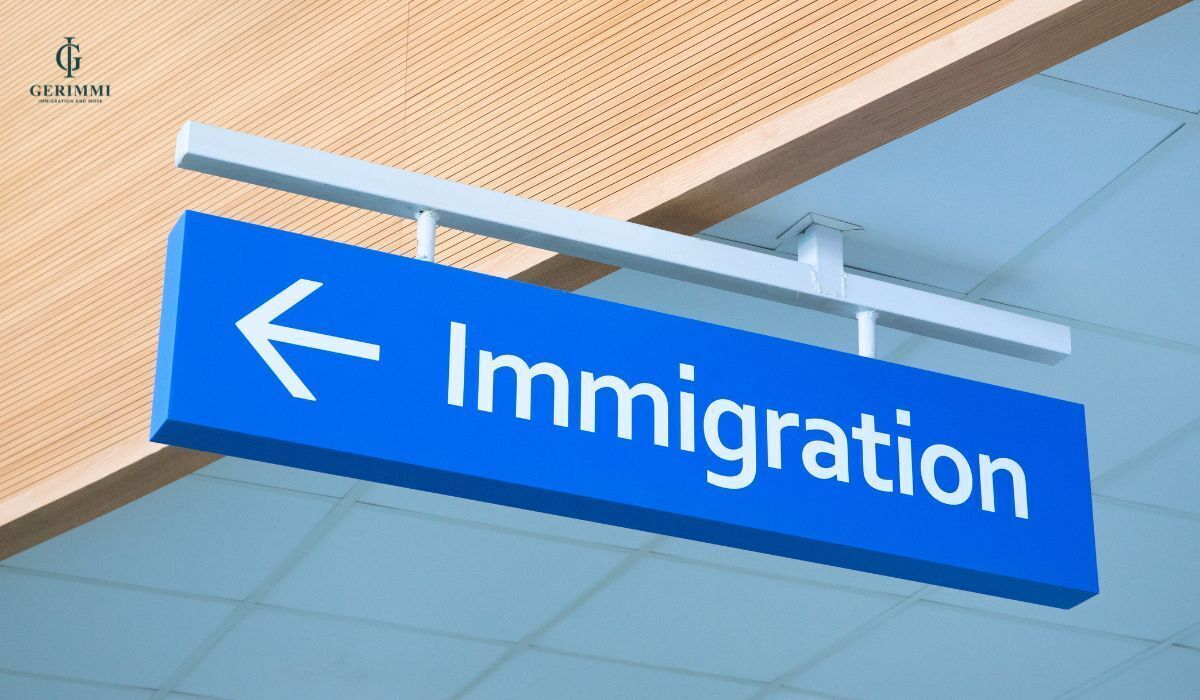
VII. Notes when applying for settlement in Australia
- Check carefully the conditions of each visa type
Each type of Australian immigration visa such as 189, 190 or 491 all have their own requirements regarding occupation, score, experience and working area. Before submitting your application, please carefully compare the conditions with your personal profile to avoid rejection. In particular, you should follow the listSTSOL, MLTSSL, ROL, PMSOLBecause the Australian government can change every year.
- Prepare complete and consistent documents
All documents such as passports, degrees, English certificates, and Skill Assessments must be clear, accurate, and consistent with the information. Missing or incorrect details in the application can also delay the visa approval process. All documents should be notarized and translated into English according to Australian accepted standards.
- Meet English and work experience requirements
English and experience are key to achieving high scores when applying.Expression of Interest (EOI)You should try to increase your IELTS/PTE band score above the minimum and gain work experience in your field of study in Australia, especially in regional areas.Regionalto get bonus points.
- Track visa policies and deadlines
Australian skilled migration policies can change rapidly, so you need to keep yourself updated with information fromDepartment of Home AffairsAt the same time, always pay attention to the duration of your temporary visa (eg 485 visa) to renew it or switch to a permanent visa before it expires, to avoid losing your legal residency rights.
Conclusion
Choosing the right career from the start of study abroad in Australia not only helps you easily find a job after graduation but also optimizes your chances of permanent settlement. The priority occupation list changes according to Australia's labor needs, so you need to closely monitor and prepare your application according to standards.

